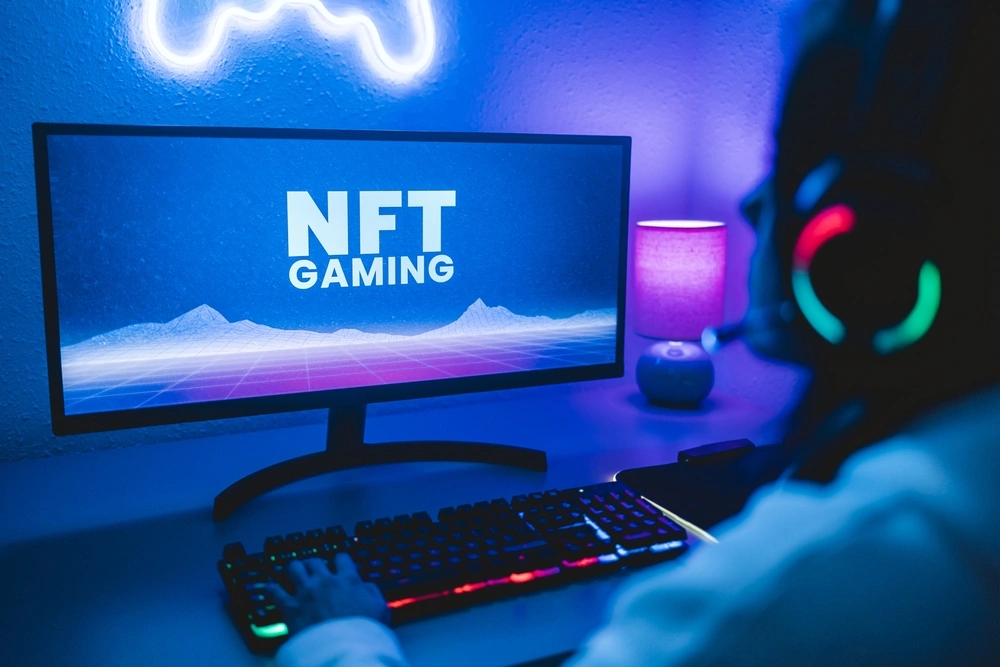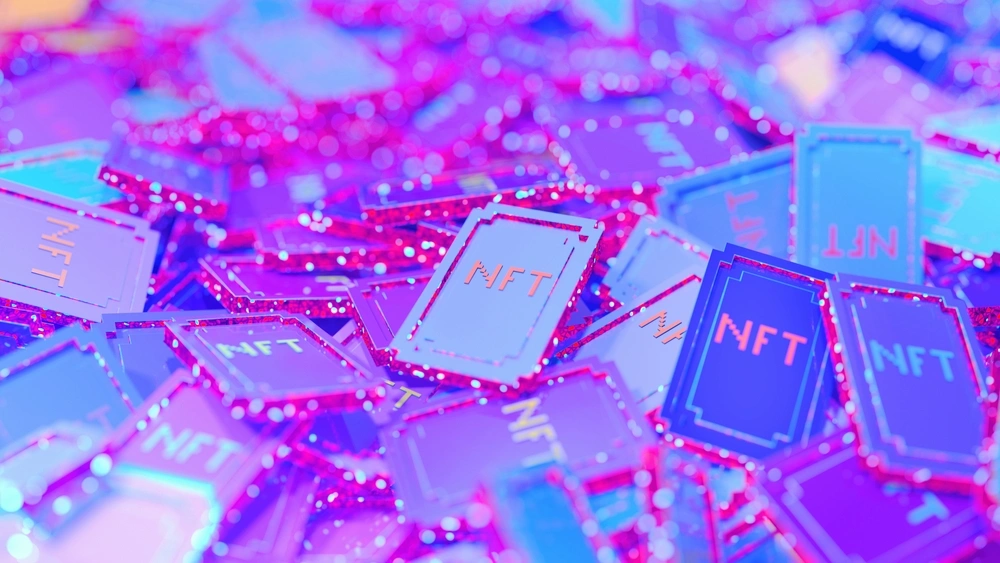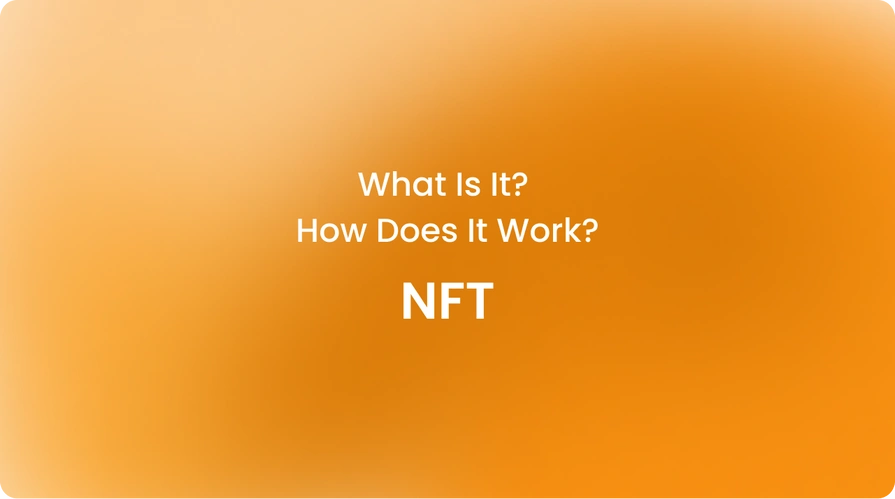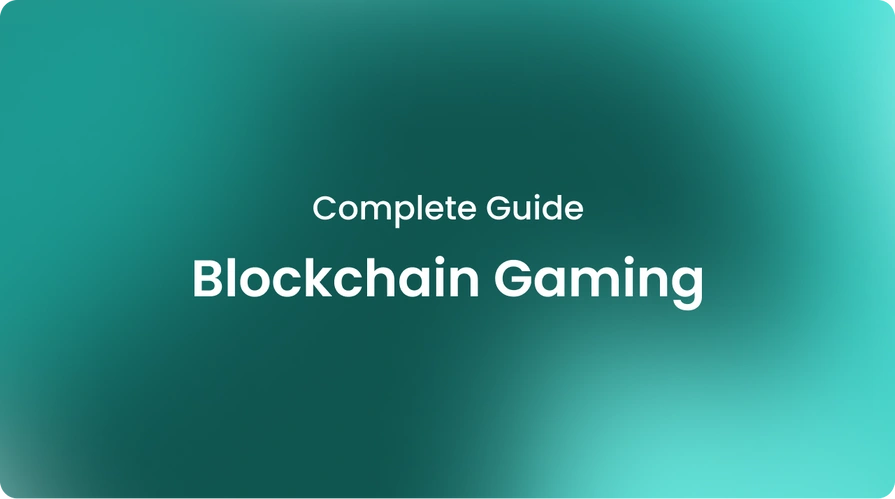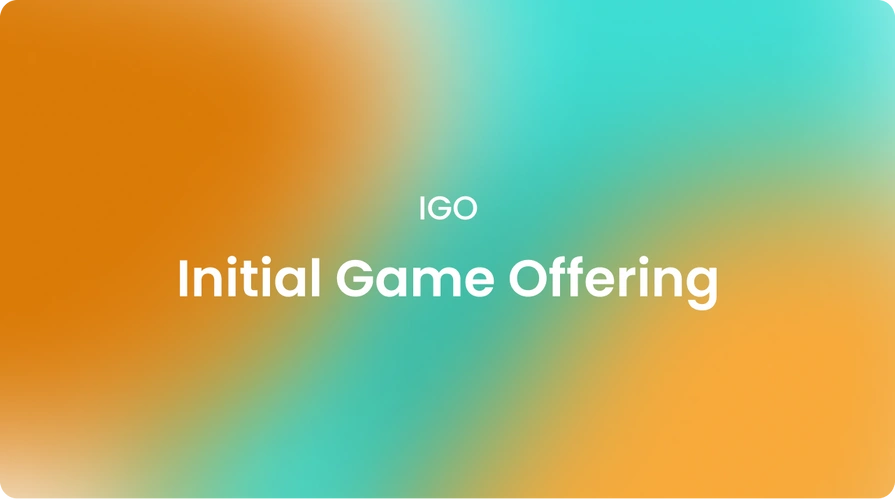|technology, knowledgehub
What Is a Gaming Token?
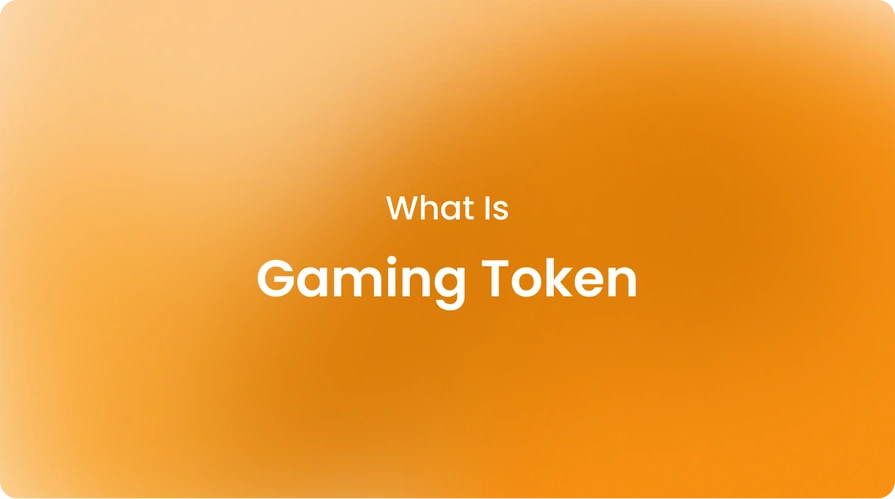
Blockchain and cryptocurrency are transforming many industries, and gaming is one sector that stands to significantly benefit from this new technology. While still in its early stages, incorporating blockchain into gaming is opening up exciting new possibilities, especially with gaming tokens.
Digital currencies have become popular in games, allowing users to earn tokens called gaming tokens, which can be used to earn gifts and rewards, such as financial assets, gifts, extra tokens, and NFTs equivalent to real money.
This article will explore some of the key aspects of the emerging blockchain gaming industry, from how these games work and how blockchain enhances gaming to statistics on the growing crypto gaming market size and predictions for the future of this space.
How do crypto games work?
In traditional games, developers are in full control of the digital items and experiences. But in blockchain and crypto games, items like weapons, skins, and other collectibles are tokenized as NFTs (non-fungible tokens) on the blockchain.
Players truly own the assets in their digital wallets and have full control over buying, selling, or trading them outside the game via open marketplaces.
For example, a player might earn rare armor by completing a difficult quest. They could then choose to hold onto it, use it to their advantage in battles, or list it for sale on an open NFT marketplace.
Another player could purchase that armor, and it would be securely transferred to their wallet. In this way, blockchain allows players to be rewarded for their time and have autonomy over digital items in a way not previously possible.
How is blockchain used in gaming?
Blockchain brings transparency and decentralization to in-game economies. Items, achievements, and other virtual assets are represented and tracked on the blockchain, giving players true ownership. Blockchain in gaming allows for liquid markets where players can exchange items freely without an intermediary.
Developers also benefit from the use of blockchain. Built-in smart contracts power autonomous gameplay, revenue sharing, and market dynamics. Royalties can be programmed to pay creators every time an item is resold.
As a crypto service provider, Cryptobunq offers custody and wallet, crypto exchange API, crypto checkout and invoicing, batch crypto payments, and more solutions. Thanks to one-stop shop crypto service provider solutions, developers can easily integrate with Cryptobunq to take advantage of blockchain in their games.
What are the pros and cons of blockchain gaming?
Some key pros of the blockchain gaming model include player ownership of assets, liquid secondary markets, the potential for real monetary value to be assigned to virtual goods, and new revenue streams for developers.
However, challenges remain around scalability, confusing UX for new players, and the carbon footprint of underlying blockchain networks. As the industry grows, more solutions will likely emerge to address blockchain gaming's current limitations.
What is the difference between blockchain gaming and traditional gaming?
The core distinction is that in traditional games, developers are in complete control over the digital world, and players have no true ownership over items. In blockchain games, every asset is an NFT hosted on a decentralized ledger.
Players are not merely paying for licensed access but instead acquiring limited edition, one-of-a-kind items represented by unique crypto tokens. They have autonomy in how they interact with and trade these digital possessions.
Another difference between blockchain gaming and traditional gaming is the ability to monetize time spent through tradable assets with real-world value. While traditional games rely on microtransactions, blockchain games using crypto are paving the way for “play-to-earn” models where effort leads to meaningful rewards.
How are NFTs related to gaming?
By issuing items as NFTs, blockchain introduces scarcity, uniqueness, and true ownership to virtual goods. Non-fungible tokens allow players to verify authenticity and prove their status through exclusive or rare limited edition items.
They can display their achievements through profile icons, weapon skins, victory poses, and more. NFTs further enhance player experiences by adding verifiable provenance to digital collectibles.
Things like limited edition founder cards, event exclusive loot drops, or national championship trophies take on real meaning when memorialized immutably on-chain. Players are able to reliably track the history and origin of each item.
NFTs are transforming what it means to collect and showcase progress in virtual worlds. Therefore, they are highly related to blockchain and crypto gaming and gaming tokens.
Is blockchain the future of gaming?
Industry analysts are optimistic about the massive potential of the future of blockchain gaming. One report from MarketsandMarkets forecasts the blockchain gaming market size to surge from $1.6 billion in 2022 to over $40 billion by 2030 at a CAGR of over 30%.
According to DappRadar, the value of NFT sales across gaming doubled year-over-year to $3.1 billion in Q3 2022 alone. Clearly, fan enthusiasm for NFT-powered games with play-to-earn mechanics is skyrocketing.
We can expect huge traditional studios and developers to start building more blockchain games. As technologies make the user experience seamless, it seems blockchain may very well reshape the gaming world as we know it and become a driving force behind the future of this $300 billion global industry.
How big is the blockchain gaming industry now?
Blockchain adoption indicators show the blockchain gaming industry is still in its early stages yet growing rapidly.
- $31.6 billion crypto market cap: The total value of the entire category, led by the leading gaming tokens IMX, BEAM, and EGLD, according to CoinMarketCap.
- 2.5 million daily active users: Popular games like The Sandbox demonstrate the scalability of on-chain models.
- 400 active games: Titles nearly doubled year-over-year throughout 2023, according to DappRadar, and that is accelerating in 2024.
- $198 million in funding: Monthly venture investment into gaming startups demonstrates rising appetite from institutional backers.
- 600 developers: Blockchain Game Alliance reports more game studios are building titles on chains like Ethereum, Solana, and Polygon each quarter.
Considering the traditional gaming industry is a $300 billion behemoth, blockchain still has massive untapped potential to transform it in the coming years as infrastructure matures and adoption spreads.
With gaming serving as a crucial early use case, blockchain networks and companies like Cryptobunq are uniquely positioned to ride this emerging trend.
You can easily benefit from CBQ solutions for maximum security in the blockchain and crypto world. Make sure to check out CBQ case studies to explore our latest Web3 reports!
The bottom line
To sum up, this blog has shown how blockchain and cryptocurrency technologies are revolutionizing the gaming industry through groundbreaking innovations in NFTs and gaming tokens.
Technologies like Ethereum allow developers to issue unique, ownable in-game items that unlock new creator monetization models and player investment opportunities through crypto tokens and blockchain-based scarcity.
These changes are enabling whole new genres of games to emerge while also interweaving crypto more deeply into existing titles. Although challenges in the blockchain gaming industry remain, market indicators point to continued growth and maturation of the industry.
Blockchain's integration has only just begun. With time and advancement, it may very well realize its potential to reshape gaming as we know it by putting players first through decentralized ownership and economic opportunities that enrich their virtual worlds in novel ways.
For gamers and developers alike, exciting times surely lie ahead as this space continues to evolve. If you want to adapt into the world of blockchain through a secure crypto service provider, Cryptobunq is here for you. Contact us today and start to benefit from our expert solutions!
